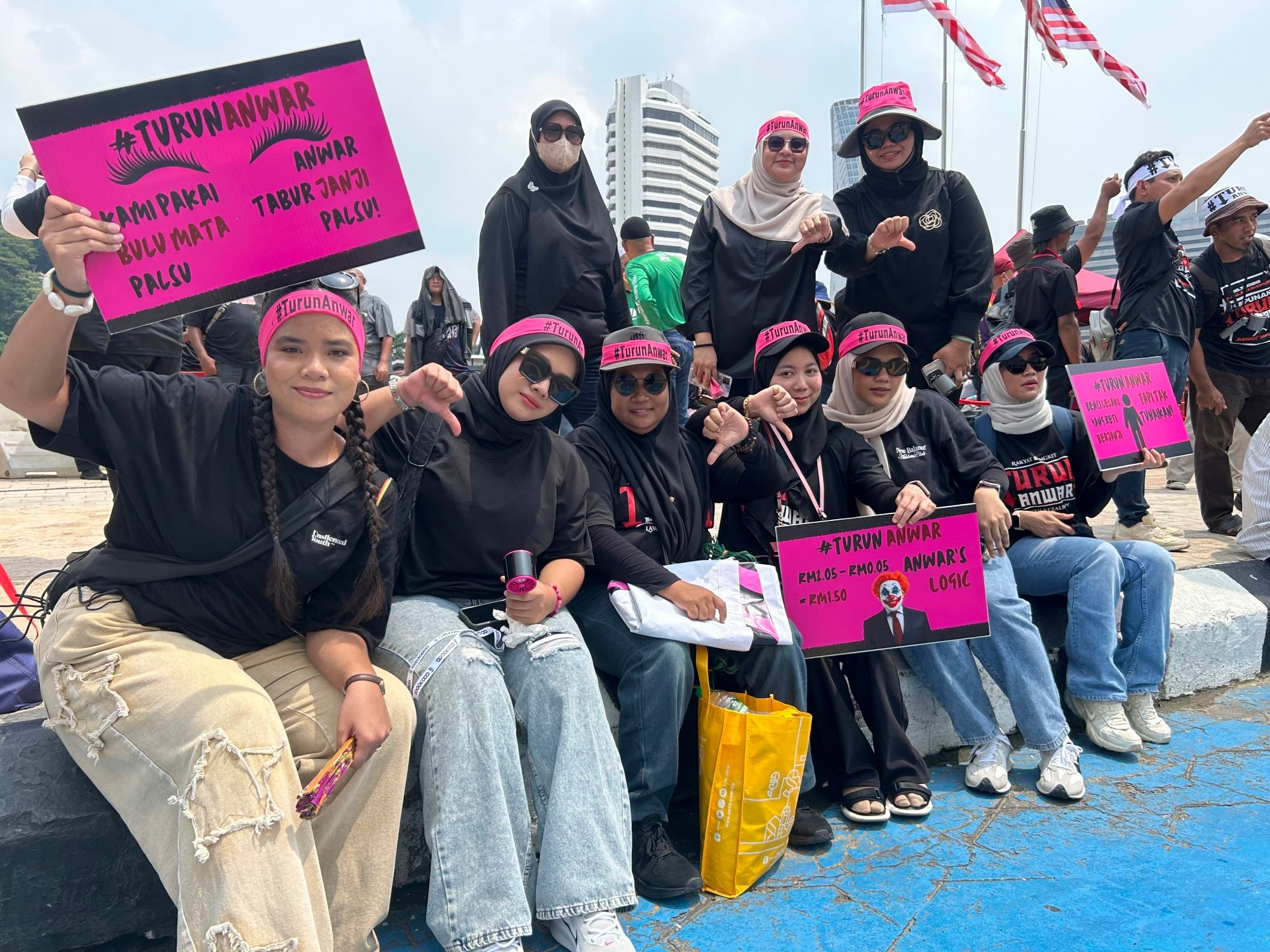‘Deeply regressive’: sanitary pad protest stirs outrage in Malaysia
The DAP’s stunt came days after a new report detailing how menstrual stigma affects Malaysian girls’ school attendance and mental well-being

In Malaysia, where menstrual stigma still shapes the lives of millions, a political protest involving sanitary pads has stirred national outrage and highlighted the urgent need to confront enduring taboos around women’s health.
The demonstration, staged on Sunday by dozens of members of the Democratic Action Party (DAP) in Negeri Sembilan, drew fierce criticism after its members wore sanitary pads over their mouths to mock the appointment of an “outsider” as a state senator – a gesture condemned as “deeply regressive”.
Protesters were opposing the selection of a senator from neighbouring Johor to replace a retiring local representative and claimed the pads – described as “thick, dense, highly absorbent and soundproof” – represented the “airtight silence” of the state party committee towards their concerns.

But the stunt, which even saw some female members take part, provoked swift condemnation from within the party itself. Senior figures warned that it risked reinforcing the shame and stigma that still surround menstruation in Malaysia.
“The menstrual pad is not a tool for personal gain or internal protest,” said the Kuala Lumpur women’s wing of the DAP in a statement. “It represents the lived experiences of millions of women and should not be exploited to make a political point, especially within our own party.”
The statement acknowledged that differences of opinion were inevitable, but urged members – “especially those with influence” – to engage in constructive dialogue rather than provocative acts that risked undermining the dignity of women.
Menstruation is not something to be ashamed of and using it as a means to shame others is just plain misogynyAmanda Shweeta Louis, All Women’s Action Society
The rebuke was echoed by the All Women’s Action Society, which labelled the stunt “nonsensical and deeply regressive”.
“In a country where many women and girls still struggle to afford menstrual products, it is deeply insensitive for men to waste and weaponise them in the political arena,” said Amanda Shweeta Louis, the society’s senior advocacy officer.
“Menstruation is not something to be ashamed of and using it as a means to shame others is just plain misogyny.”
The controversy erupted just days after the Malaysian Human Rights Commission (Suhakam) released a report warning of the dangers of menstrual stigma. The report found that such stigma had a large negative effect on school attendance, workforce participation, mental health and overall well-being.
“One of the barriers to achieving menstrual dignity stems from the lack of accurate, accessible, and age-appropriate information on menstruation,” Suhakam said. This knowledge gap was often perpetuated “by cultural stigma, misinformation, and the way menstruation is portrayed in the media”, the report found.

Just under half – or around 16 million – of Malaysia’s estimated 34.2 million people are women, with a gender ratio of 103 women for every 110 men.
According to the report, one in 10 girls aged 13 to 17 faces difficulties accessing period products, leading some to skip school or work and exposing them to shame, distress and untreated health issues.
Unhandled type: inline-plus-widget {“type”:”inline-plus-widget”}
Suhakam also highlighted reports of girls being subjected to random “period checks” by teachers, allegedly to prevent students from using menstruation as an excuse to avoid prayers or Islamic activities. Under Islamic practice, menstruating women are exempt from certain religious rites.
Speaking at the launch of Suhakam’s report, obstetrician and gynaecologist Dr Hannah Nazri stressed the effect cultural taboos and poverty were having on Malaysian girls, – noting that nearly half in rural areas lack access to sanitary products.
“Some would even rather get pregnant than deal with menstruation due to the costs and stigma,” she said.